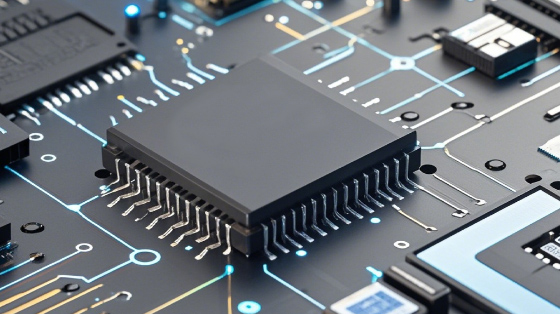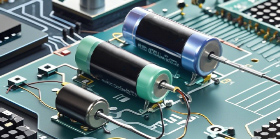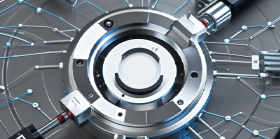The Crucial Role of Integrated Circuits (ICs) in Shaping the Modern World
2024/10/25 11:21:06
In today's highly advanced technological landscape, integrated circuits (ICs) stand as the unsung heroes powering a vast array of devices and systems that have become an integral part of our daily lives. From the smartphones we carry in our pockets to the supercomputers driving scientific research and the complex machinery in industrial settings, ICs are the fundamental building blocks that enable the seamless functioning of modern technology.
An integrated circuit, also known as a chip or microchip, is a miniaturized electronic circuit fabricated on a semiconductor material, typically silicon. It consists of millions or even billions of transistors, resistors, capacitors, and other electronic components that are interconnected to perform specific functions. The development of ICs has revolutionized the electronics industry by enabling the integration of complex electronic functions into a single, tiny package.
One of the most significant impacts of ICs is in the field of computing. Microprocessors, which are a type of IC, serve as the brains of computers and other digital devices. These powerful chips are capable of performing billions of calculations per second, enabling us to run complex software applications, process large amounts of data, and access the internet with ease. The continuous evolution of microprocessors has led to the exponential growth in computing power over the past few decades, driving advancements in areas such as artificial intelligence, machine learning, and big data analytics.

In the world of telecommunications, ICs play a crucial role in enabling high-speed data transmission and wireless communication. Mobile phones, for example, rely on a variety of ICs to process signals, manage power consumption, and connect to cellular networks. The development of advanced ICs has led to the proliferation of smartphones with features such as high-resolution displays, powerful cameras, and long battery life. Additionally, ICs are essential for the operation of telecommunications infrastructure, including base stations, routers, and switches, which enable the seamless transfer of data across the globe.
The automotive industry has also been transformed by the widespread adoption of ICs. Modern vehicles are equipped with a plethora of electronic systems, such as engine control units, anti-lock braking systems, and infotainment systems, all of which rely on ICs to function. These chips enable precise control of engine operations, improve fuel efficiency, enhance safety features, and provide entertainment and connectivity options for drivers and passengers. The increasing integration of ICs in automobiles is driving the development of autonomous driving technologies, as advanced sensors and processors are required to process large amounts of data and make split-second decisions.
In the healthcare sector, ICs are enabling breakthroughs in medical diagnostics and treatment. Medical devices such as ultrasound machines, MRI scanners, and implantable medical devices rely on ICs to process and analyze signals, providing accurate and detailed images and diagnostic information. Additionally, wearable health monitors and fitness trackers use ICs to measure vital signs and activity levels, allowing individuals to monitor their health and fitness on a daily basis. The development of low-power and miniaturized ICs is opening up new possibilities for remote patient monitoring and personalized healthcare.
The manufacturing of ICs is a highly complex and sophisticated process that requires advanced technology and precision engineering. The fabrication process typically involves several steps, including wafer preparation, lithography, etching, doping, and packaging. Each step requires strict quality control and precision to ensure the proper functioning of the final product. The continuous improvement in manufacturing processes and the development of new materials are driving the production of smaller, faster, and more power-efficient ICs.
Despite the many benefits of ICs, their development also poses several challenges. One of the major challenges is the increasing demand for miniaturization and higher performance, which requires continuous innovation in manufacturing processes and materials. Additionally, the complexity of IC design and testing requires highly skilled engineers and significant investment in research and development. Moreover, the electronics industry is facing issues related to environmental sustainability, as the production and disposal of ICs can generate significant amounts of electronic waste.
To address these challenges, the electronics industry is collaborating with researchers and policymakers to develop sustainable manufacturing practices and recycling solutions. Additionally, efforts are being made to improve the efficiency and performance of ICs through the development of new materials and architectures. For example, the use of carbon nanotubes and graphene in IC manufacturing holds promise for the development of faster and more power-efficient chips.
In conclusion, integrated circuits have had a profound impact on our lives and continue to drive technological advancements in various fields. As the demand for more powerful and efficient electronic devices continues to grow, the role of ICs will only become more crucial. Through continuous innovation and collaboration, the electronics industry is working towards the development of even more advanced ICs that will shape the future of technology and improve our quality of life.
Related Information

- 2025.05.12 Intel terminates Deep Link program



